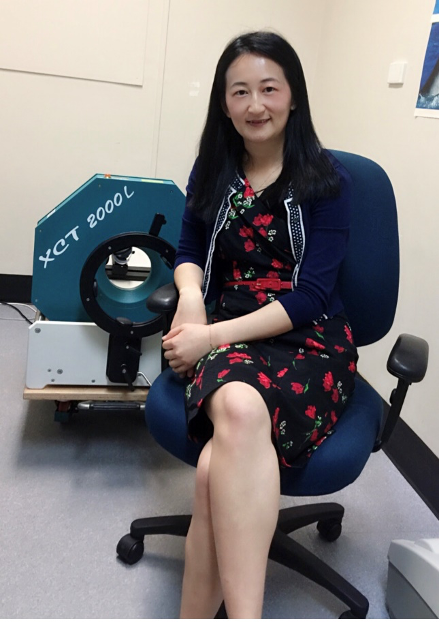The Geelong Osteoporosis Study (GOS) has recently reported world first study links between muscle density and cognitive function.
Low muscle density is considered a sign of fat infiltration into muscle. The consequences of fat infiltration into skeletal muscle include mobility disability and metabolic impairment.
Middle-age obesity is a risk factor for Alzheimer’s disease. This is because adipokines secreted by adipose tissue can cross the blood-brain barrier and affect cognitive function.
This study also looked at the role of inflammation, body composition, age and lifestyle factors in this association.
The GOS is a well-established, ongoing study led by Professor Julie Pasco, from Deakin’s IMPACT Institute.
The GOS is unique in Australia in that it comprises a randomly-selected representative sample of over 3,000 adults, drawn from a broad spectrum of socio-demographic backgrounds in the Geelong region.
Although the study was originally designed to investigate the epidemiology of osteoporosis, it has subsequently expanded to examine relationships between other aspects of musculoskeletal disorders and psychological ill-health.
Body-brain crosstalk
The GOS has a strong history of producing evidence about the links between physical health and mental health.
To add to this, Sophia’s PhD project focuses on the relationship between skeletal muscle and cognitive function.
We know that about 50 million people have dementia worldwide, and this number is projected to reach 152 million in 2050. There is currently no effective cure for the condition.
We also know that age-related cognitive decline affects independent living and quality of life.
As people get older, changes in thinking and memory are common and usually have little impact on life.
However, if the cognitive changes exceed the norms for a specific age and include symptoms such as memory loss, forgetfulness, difficulty in decision-making and problem solving, the change may mean a transition to dementia.
Some day-to-day activities that could be hindered by cognitive decline include driving a car, financial decision making, and legal obligations.
It is evident that age-related muscle deterioration links with cognitive decline. For example, muscle strength and gait speed are associated with attention and psychomotor function.
Sophia’s PhD uncovers how muscle health can support brain health, with the suggestion that maintaining and building muscle mass and strength might delay the onset of conditions like dementia.
Sophia is generating evidence for future clinical trials that could promote specific exercise, diet and health behaviours.
These could be championed as public health strategies that will have additional health benefits for all Australians.
Muscle links cognitive function
In this study, our participants were invited to complete several cognitive function tasks, to assess the cognitive domains of psychomotor function, visual attention, recognition memory and working memory.
Impairment in any of the domains could be an early sign of cognitive decline.
We assessed their body composition, including muscle density, using an X-ray technique called pQCT which provides 3D imagines of bone, muscle and fat tissue and identifies signs of fat infiltration into the muscle that traditional assessment tools cannot.

We also obtained data such as demographic characters and blood samples, to examine the relationship between muscle density and cognitive function independent of these factors.
This original research reports a link between low muscle density and poor cognition in the domains of psychomotor function and visual learning independent of age, physical activity levels and education status.
This provides a rationale for future studies that might explore muscle health parameters that might slow cognitive decline during ageing.
Mild cognitive impairment is recoverable, and patients may not develop dementia. But intervention at this intermediate stage may be important to change the trajectory of dementia.
This study identifies potential targets for ageing muscle.
In the future, brain imaging or neuro bio-techniques are needed to identify underlying common mechanisms.
Discover more about this study.
Dr Sophia Sui is a PhD graduate from Deakin University. She was supported by a Deakin Postgraduate Scholarship in conjunction with the Geelong Medical and Hospital Benefits Association (GMHBA).
Julie Pasco is a Professor within Deakin’s School of Medicine. She has received speaker fees from Amgen, Eli Lilly and Sanofi-Aventis and funding from the NHMRC, Barwon Health, Deakin University, the BUPA Foundation, Osteoporosis Australia, Australia and New Zealand Bone and Mineral Society, the Geelong Community Foundation, Western Alliance, Amgen and the Norman Beischer Foundation.




